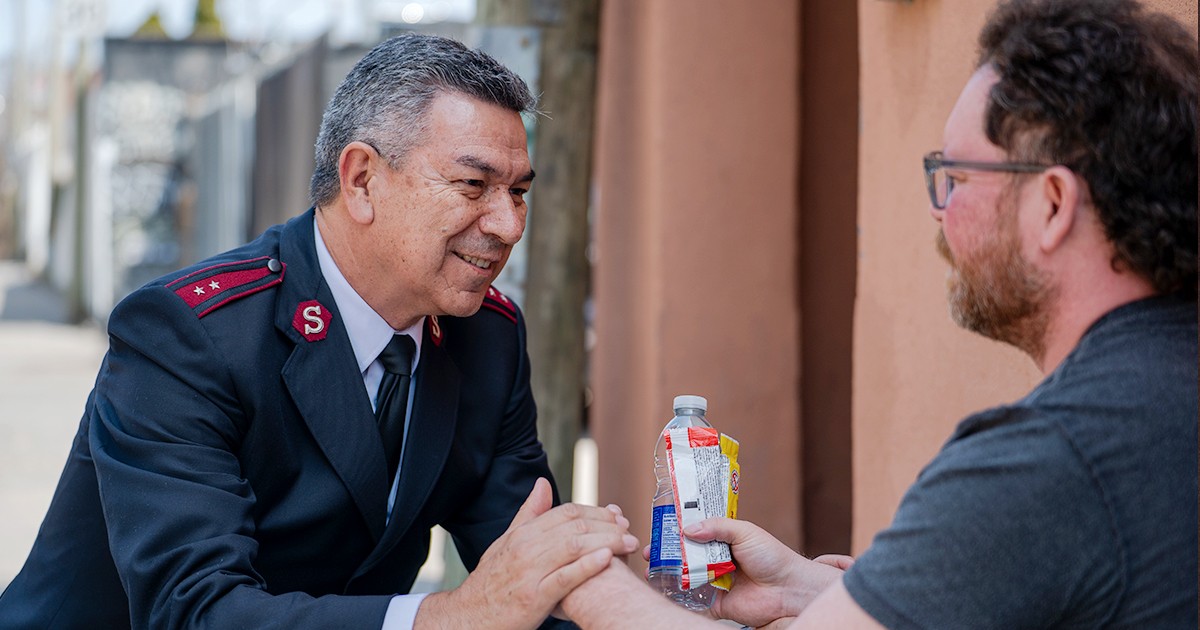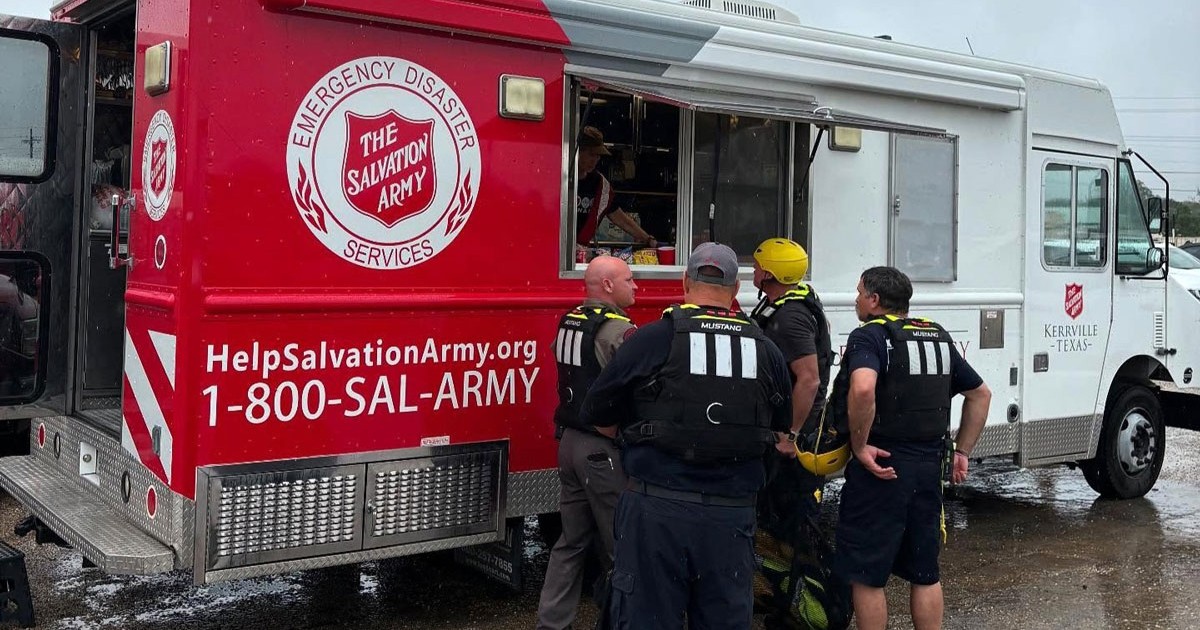Dear Jim,
Do you ever hear a news story that haunts you? Some injustice that makes you angry or some freak accident that makes you weep? Lately I can't stop thinking about a little boy in Arizona. His story was the big news in the United States for about a week, until it got overshadowed by the potential government bailout of the major auto companies.
The boy's father and his friend were shot dead. This eight-year-old, who was at the crime scene, was brought into the police station to be questioned as a witness. Because he was only a witness, it was not required that he have an attorney—or any adult—with him. There are tapes of the interrogation, which have played on the news many times (with the boy's face obscured). As the interrogation proceeded, the boy made a confession—a rather tentative confession—to having committed the crime.
The boy reminds me of one of my youngest son's friends. His voice, his choice of words—both times I watched that scene I felt like I was watching Calvin. Maybe that's why I can't get this story out of my head. I keep thinking, “That kid is just like the boys I know, the boys in my neighbourhood and at my corps. He's just an everyday kid.”
Many people feel that this frightened boy was manipulated into a confession, and I must admit that it came across that way to me.
Last I heard, he was in jail, separated from his mother, a glass barrier dividing them during her visits. They keep the child in solitary confinement so he won't be affected by other prisoners. Can you imagine it, Jim? An eight-year-old kid, going to bed alone in a cell, with no one to comfort him after seeing his father bleed and die? No one to hold him if he has a nightmare or wipe away his tears when he is afraid?
The whole thing makes my blood boil. I don't understand why every person in Arizona isn't up in arms, demanding for some other situation for this boy. In his “confession,” he said his father was already mortally wounded and he shot him to end his pain. But really, no matter what the circumstance, the treatment of the boy is, in my opinion, inexcusable. I pray he is aware of God's comforting presence.
I have malformed, vague ideas on the treatment of criminals. I guess that is because I feel that a one-size-fits-all kind of justice is too arbitrary and too unproductive. I like to look at things from a biblical perspective when I can. Old Testament justice, I grant you, is highly punitive and without much wiggle room. Perhaps it had to be that way in such a primitive land. But the New Testament breathes a sense of restoration rather than just punishment. I think of the adultress who, legally, could have been stoned (see John 8:1-11). But Jesus forgave her and said, “Go, and sin no more.”
I don't mean that we should just say to criminals, “Go, and murder/steal/cheat no more.” But I am saying that we should evaluate each situation with a desire to bring change rather than retribution. I believe everyone should be held responsible for his actions. But a community should value the life of each man, woman and child enough to make every effort to restore them. Restoration can be done behind prison bars where prisoners are treated humanely. Time should be served for crime, but time should not be wasted. In many American prisons there is opportunity to get a college education, for example. But it is optional. Perhaps greater demands toward personal growth should be placed upon those in prison.
At the very least, every precaution should be taken so that “the system” doesn't cause mental, emotional and physical harm to the prisoner. Society is not served when a released prisoner is angrier, more disturbed or less qualified for functioning in society than he was when he went in. This applies to all prisoners. But right now, I'm mostly concerned about that boy. What on earth will become of a little eight-year-old who was grilled by police officers who pretended to be his friends but were actually his predators? What becomes of a child who, at the most traumatic juncture of his life, is separated from his family and taken to a sterile, lonely place?
Our God is able to heal all wounds. I pray the boy in Arizona knows God, or will soon find him.
Amy
Dear Amy,
People do some really horrible things in the name of justice, don't they? The treatment of that little eight-year-old in Arizona, for instance.
I don't find it incredible that a child that young should know how to use a gun, I'm sad to say. I don't even find it incredible that a child that young would want to kill somebody, which is even more unfortunate. But, as you say, if that's what happened, if this eight-year-old did kill somebody, I find it incredible that society's response is to put the child in solitary confinement. It's outrageous!
You worry about the future effects of what's being done to him now. Me, too, but I'm also troubled that even by a measure of retributive justice (which has a place in my ethics), the punishment doesn't fit. He's only a child, after all.
For a couple of years, our family lived up the road from Erwin, Tennessee. Erwin is notorious as the town that judicially hanged a circus elephant in 1916 for trampling a man to death. That's not justice; it's the perversion of justice. Elephants can't have “malice aforethought,” and though eight-year-old boys are a lot smarter than any elephant, they can't either.
The idea that a young child would be found guilty of murder is offensive. But the idea that anyone could be found guilty on the basis of corrupted investigative processes is equally offensive. What's that old saying? “Justice must not only be done, but be seen to be done.” And what we've seen on CNN and elsewhere is not justice.
Come to think of it, someone familiar with the Bible has to ask whether any human process could be just. You referred to the story from John 8 and highlighted Jesus' forgiveness. But before this, Jesus turned to the woman's accusers and told them that their own failings undermined their moral authority to exact punishment. In our day, I think we have to ask not only whether criminals are guilty but whether the system that would do the punishing has lost the moral authority to do it.
Have we created prison conditions that brutalize? Have we made it impossible for the poor to get good legal representation? Have we become comfortable with double standards that wink at “white collar” crimes but come down hard on “street” crimes?
There are times when justice has been perverted because seeking retribution was left in the hands of the victim or the victim's family, and then vengeance spiraled out of control. (I am told that we should read the “eye for an eye” commandment of the Old Testament with this in mind. That is, God's order is actually “no more than an eye for an eye; no more than a life for a life.”) To prevent the escalation of revenge, it's generally better that the punishment of crimes be put in the hands of state authorities (the Crown in Canada). But today I think many feel that justice is being perverted for the opposite reason—the distance between the victim and the offender has become too great.
That's why I am encouraged by what I hear about “restorative justice” being taken seriously. As I understand it, this approach recognizes that crimes are not only against the state/Crown, but against flesh and blood. For this reason, it tries to make it possible for relationships ruptured by injustice to be restored. This has got to be tough work, but it also seems to have something deeply Christian about it.
I can expect that you'd like to challenge me on the question of whether retribution can truly have a place in biblically-grounded Christian ethics, but that's going to have to wait for another time, Amy.
Jim

 In this Talking It Over series, Dr. James Read, Executive Director of The Salvation Army Ethics Centre in Winnipeg, and Captain Amy Reardon, Editor of Young Salvationist, U.S.A. National Headquarters, dialogue about moral and ethical issues. Click here to read more debates in the Talking It Over series.
In this Talking It Over series, Dr. James Read, Executive Director of The Salvation Army Ethics Centre in Winnipeg, and Captain Amy Reardon, Editor of Young Salvationist, U.S.A. National Headquarters, dialogue about moral and ethical issues. Click here to read more debates in the Talking It Over series.
Do you ever hear a news story that haunts you? Some injustice that makes you angry or some freak accident that makes you weep? Lately I can't stop thinking about a little boy in Arizona. His story was the big news in the United States for about a week, until it got overshadowed by the potential government bailout of the major auto companies.
The boy's father and his friend were shot dead. This eight-year-old, who was at the crime scene, was brought into the police station to be questioned as a witness. Because he was only a witness, it was not required that he have an attorney—or any adult—with him. There are tapes of the interrogation, which have played on the news many times (with the boy's face obscured). As the interrogation proceeded, the boy made a confession—a rather tentative confession—to having committed the crime.
The boy reminds me of one of my youngest son's friends. His voice, his choice of words—both times I watched that scene I felt like I was watching Calvin. Maybe that's why I can't get this story out of my head. I keep thinking, “That kid is just like the boys I know, the boys in my neighbourhood and at my corps. He's just an everyday kid.”
Many people feel that this frightened boy was manipulated into a confession, and I must admit that it came across that way to me.
Last I heard, he was in jail, separated from his mother, a glass barrier dividing them during her visits. They keep the child in solitary confinement so he won't be affected by other prisoners. Can you imagine it, Jim? An eight-year-old kid, going to bed alone in a cell, with no one to comfort him after seeing his father bleed and die? No one to hold him if he has a nightmare or wipe away his tears when he is afraid?
The whole thing makes my blood boil. I don't understand why every person in Arizona isn't up in arms, demanding for some other situation for this boy. In his “confession,” he said his father was already mortally wounded and he shot him to end his pain. But really, no matter what the circumstance, the treatment of the boy is, in my opinion, inexcusable. I pray he is aware of God's comforting presence.
I have malformed, vague ideas on the treatment of criminals. I guess that is because I feel that a one-size-fits-all kind of justice is too arbitrary and too unproductive. I like to look at things from a biblical perspective when I can. Old Testament justice, I grant you, is highly punitive and without much wiggle room. Perhaps it had to be that way in such a primitive land. But the New Testament breathes a sense of restoration rather than just punishment. I think of the adultress who, legally, could have been stoned (see John 8:1-11). But Jesus forgave her and said, “Go, and sin no more.”
I don't mean that we should just say to criminals, “Go, and murder/steal/cheat no more.” But I am saying that we should evaluate each situation with a desire to bring change rather than retribution. I believe everyone should be held responsible for his actions. But a community should value the life of each man, woman and child enough to make every effort to restore them. Restoration can be done behind prison bars where prisoners are treated humanely. Time should be served for crime, but time should not be wasted. In many American prisons there is opportunity to get a college education, for example. But it is optional. Perhaps greater demands toward personal growth should be placed upon those in prison.
At the very least, every precaution should be taken so that “the system” doesn't cause mental, emotional and physical harm to the prisoner. Society is not served when a released prisoner is angrier, more disturbed or less qualified for functioning in society than he was when he went in. This applies to all prisoners. But right now, I'm mostly concerned about that boy. What on earth will become of a little eight-year-old who was grilled by police officers who pretended to be his friends but were actually his predators? What becomes of a child who, at the most traumatic juncture of his life, is separated from his family and taken to a sterile, lonely place?
Our God is able to heal all wounds. I pray the boy in Arizona knows God, or will soon find him.
Amy
Dear Amy,
People do some really horrible things in the name of justice, don't they? The treatment of that little eight-year-old in Arizona, for instance.
I don't find it incredible that a child that young should know how to use a gun, I'm sad to say. I don't even find it incredible that a child that young would want to kill somebody, which is even more unfortunate. But, as you say, if that's what happened, if this eight-year-old did kill somebody, I find it incredible that society's response is to put the child in solitary confinement. It's outrageous!
You worry about the future effects of what's being done to him now. Me, too, but I'm also troubled that even by a measure of retributive justice (which has a place in my ethics), the punishment doesn't fit. He's only a child, after all.
For a couple of years, our family lived up the road from Erwin, Tennessee. Erwin is notorious as the town that judicially hanged a circus elephant in 1916 for trampling a man to death. That's not justice; it's the perversion of justice. Elephants can't have “malice aforethought,” and though eight-year-old boys are a lot smarter than any elephant, they can't either.
The idea that a young child would be found guilty of murder is offensive. But the idea that anyone could be found guilty on the basis of corrupted investigative processes is equally offensive. What's that old saying? “Justice must not only be done, but be seen to be done.” And what we've seen on CNN and elsewhere is not justice.
Come to think of it, someone familiar with the Bible has to ask whether any human process could be just. You referred to the story from John 8 and highlighted Jesus' forgiveness. But before this, Jesus turned to the woman's accusers and told them that their own failings undermined their moral authority to exact punishment. In our day, I think we have to ask not only whether criminals are guilty but whether the system that would do the punishing has lost the moral authority to do it.
Have we created prison conditions that brutalize? Have we made it impossible for the poor to get good legal representation? Have we become comfortable with double standards that wink at “white collar” crimes but come down hard on “street” crimes?
There are times when justice has been perverted because seeking retribution was left in the hands of the victim or the victim's family, and then vengeance spiraled out of control. (I am told that we should read the “eye for an eye” commandment of the Old Testament with this in mind. That is, God's order is actually “no more than an eye for an eye; no more than a life for a life.”) To prevent the escalation of revenge, it's generally better that the punishment of crimes be put in the hands of state authorities (the Crown in Canada). But today I think many feel that justice is being perverted for the opposite reason—the distance between the victim and the offender has become too great.
That's why I am encouraged by what I hear about “restorative justice” being taken seriously. As I understand it, this approach recognizes that crimes are not only against the state/Crown, but against flesh and blood. For this reason, it tries to make it possible for relationships ruptured by injustice to be restored. This has got to be tough work, but it also seems to have something deeply Christian about it.
I can expect that you'd like to challenge me on the question of whether retribution can truly have a place in biblically-grounded Christian ethics, but that's going to have to wait for another time, Amy.
Jim

 In this Talking It Over series, Dr. James Read, Executive Director of The Salvation Army Ethics Centre in Winnipeg, and Captain Amy Reardon, Editor of Young Salvationist, U.S.A. National Headquarters, dialogue about moral and ethical issues. Click here to read more debates in the Talking It Over series.
In this Talking It Over series, Dr. James Read, Executive Director of The Salvation Army Ethics Centre in Winnipeg, and Captain Amy Reardon, Editor of Young Salvationist, U.S.A. National Headquarters, dialogue about moral and ethical issues. Click here to read more debates in the Talking It Over series.









Leave a Comment